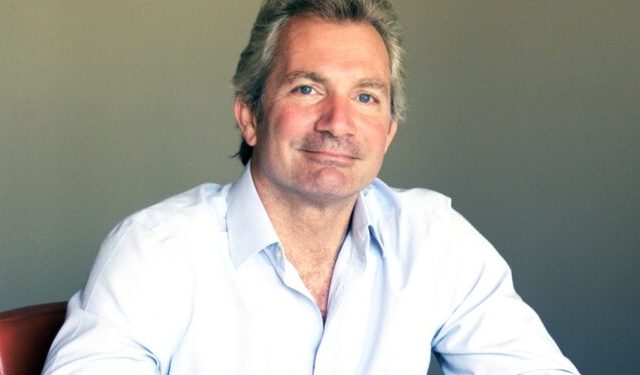Shares in three of Japan’s five largest trading conglomerates reached record highs over the past week, following an announcement by Warren Buffett that he is keen to own more of their stock. It is just the latest good news for the firms. Itochu, Marubeni, Mitsui, Mitsubishi and Sumitomo Corporation have surged in value since Berkshire Hathaway, Mr Buffett’s investment firm, announced its first purchases on his 90th birthday in 2020. Since then, their share prices have risen by between 64% and 202%.
In some ways Japan and Mr Buffett are a match made in heaven. Mr Buffett is famed for his unerring focus on business fundamentals. Even after a recent sell-off in American stocks the broad Tokyo market is still far cheaper. Its price-to-earnings ratio (based on expected earnings over the next year) is around 13, compared with 18 in America. The trading firms Berkshire Hathaway has invested in—known in Japan as sogo shosha—are often seen as stodgy and reliable. All have price-to-earnings ratios of below ten and pay healthy dividends.
Berkshire Hathaway’s Japan trade is revealing in other ways, too. It illustrates why the country may become a more appetising destination for other American investors. On April 14th the investment firm issued around $1.2bn in yen-denominated bonds, adding to the $7.8bn it issued from 2019 to 2022. Not only is Japan now Berkshire Hathaway’s second-largest investment location—the yen is also its second-largest funding currency. Even before the recent issuance, nearly a fifth of Berkshire Hathaway’s debt was denominated in yen.
The company is not borrowing because it is short of cash. Rather, the trade reveals the advantages of currency hedging. Borrowing as well as buying in yen protects Mr Buffett from falls in the currency’s value. And as a result of the gulf in interest rates between America and Japan, he can finance his investments using long-term loans charging less than 2% annually, while keeping his spare cash at home invested in government bonds earning almost 5%. Mr Buffett has questioned the merit of currency hedging in the past. Its appeal today seems to be irresistible. Borrowing in yen is so cheap relative to doing so in dollars that the trade is a no-brainer for investors with even a passing interest in Japanese stocks.
Of course, not every such investor can easily issue yen-denominated bonds. But those who cannot may exploit the monetary-policy gap with more straightforward currency hedges. Prices in forward and futures markets are determined by the difference in interest rates between the two economies in question. The surge in American but not Japanese interest rates over the past 18 months means that Japanese investors are paying an enormous premium to buy American assets and protect themselves from currency movements. American investors get a rather lovely premium when they do the same in the other direction.
The yen currently trades at 134 to the dollar, but currency-futures maturing in March next year give investors the opportunity to sell at 127 to the greenback. That locks in a 5% return over little less than a year. The only cost is that the buyer must hold yen for the whole period. For investors who want to own Japanese stocks, the return to hedging is essentially a bonus. The opportunity looks unlikely to disappear. Even if the Bank of Japan abandons its yield-curve-control policy, few analysts expect a big rise in Japanese rates.
The potential benefits are large. Over the past year, the msci usa index has provided net returns, including capital gains and dividends, of -5%. The msci Japan index, unhedged but in dollar terms, provided a return of 1%. The msci Japan Hedged index, based on the returns of Japanese stocks employing one-month-rolling-currency forwards, is up by 12% over the same period.
It is probably only because of the enviable returns to American stocks over the past decade or so that more investors have not taken advantage of the Japanese bonus. But big names are beginning to jet to the other side of the Pacific. Elliott Management, an activist investor, has been rewarded for its intervention in Dai Nippon Printing. The company’s shares have surged by 46% this year. Meanwhile, Citadel, an American hedge fund, is reportedly reopening an office in Tokyo, having stayed away for the past 15 years. After a period in which the Japanese market has quietly offered solid returns, the example of Mr Buffett and other giants of American finance might draw a little more attention.■
Read more from Buttonwood, our columnist on financial markets:
What luxury stocks say about the new cold war (Apr 13th)
Stocks have shrugged off the banking turmoil. Haven’t they? (Apr 5th)
Did social media cause the banking panic? (Mar 30th)
Also: How the Buttonwood column got its name



The Most Read
Сryptocurrencies
Bitcoin and Altcoins Trading Near Make-or-Break Levels
Financial crimes
Thieves targeted crypto execs and threatened their families in wide-ranging scheme
Financial crimes
Visa Warning: Hackers Ramp Up Card Stealing Attacks At Gas Stations
News
Capitalism is having an identity crisis – but it is still the best system
Uncategorized
The 73-year-old Vietnamese refugee is responsible for bringing Sriracha to American consumers
Uncategorized
Electric Truckmaker Rivian, Backed By Amazon, Ford, Raises Whopping $1.3 Billion